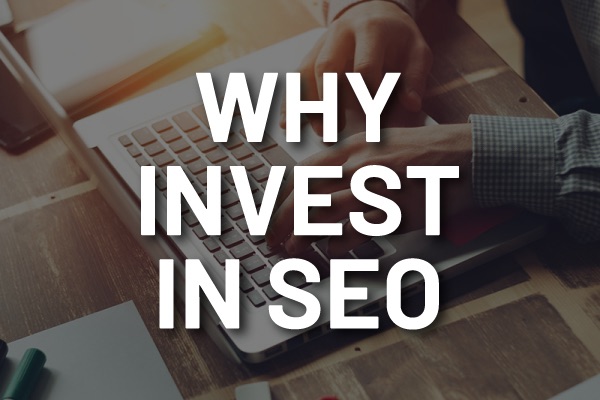
Any investment in your business needs to be carefully considered. Properly investing in resources, equipment, real estate, staff, inventory, business development, and marketing can ensure a lifetime of growth, profit and success. Poorly choosing your investments is one of the primary reasons businesses fail.
Marketing budgets are no exception. Marketing of any kind needs to be constantly and carefully evaluated in terms of return on investment, cost per acquisition, and current state vs desired state in terms of incoming business over capacity. How much business are you doing and how much could you do without increasing capacity.
You may have heard it said that businesses advertise for three main reasons: Profit, Prestige, and Protection. If you really examine that statement, you see that the reason a business would want prestige is so that they can charge more for their services, and the reason they feel a need to protect market share is so they don’t’ lose customers to their competitors. So what the statement really says is “Businesses advertise for three main reasons: Profit, Profit, and Profit.”
Marketing On the Internet
The Internet is no different from any other medium when it comes to what you consider when looking at investments in marketing. Question one should always be: “Is this going to be a source of income or a drain on my resources?”
A well-built website forms the foundation for everything else. You can’t build a skyscraper on a foundation meant for a cottage. Once that’s done, there are many options to consider in terms of promoting your business online. Paid sources, like Adwords, Online Display ads, and Sponsored Social posting, done properly all provide a manageable flow of incoming attention from quality sources, and can result in great ROI.
Investments in Search Engine Optimization can be scarier since there are no guarantees, and, similar to finding a trustworthy mechanic, it’s hard to find a reputable SEO company you can feel good about trusting with this kind of investment. That said, in most cases, for most businesses, it’s critical.
Investing in SEO
One of the reasons investing in SEO can be scary is because frankly, most business owners have practically no idea what it involves. The fact that many internet marketing professionals sound like they’re talking Greek when talking about what needs to be done with your online presence doesn’t help. The constant barrage of phone calls, emails and contact form submissions from shady characters promising “page one of Google” and “unlimited clicks” doesn’t help either. Let’s talk about what you’re investing in.
An appropriate investment in SEO is an investment in your entire online presence. The end goal is to get more business. The purpose is to continually improve the quantity and quality of visits to your website from organic sources. The result of the work being done is improved visibility in search for terms that you are a good result for, but it’s a good idea to remember the purpose and focus on that first. Is the work being done bringing more people to my website who are taking more actions when they get there that result in my business making more money? That’s why you’re investing in SEO, not “to be on page one of Google for “widgets in Arlington, Tx”
Translating the Greek
As an internet marketing professional, I know if I’m not careful, three-quarters of what I say will sound like gobble-de-gook. SERPS, and DNR’s, HTML and PHP, Scripts and Plug-ins, CMS and servers, content and markup, analytics and algorithms, penguins, pandas, pigeons, and hummingbirds … Lose you yet? Here’s an easier way to think about it.
Google is trying to show you the best result for what you’re looking for in the first position every time you search. It’s evaluating each page on your website comparing thousands of factors to determine how good each page is for any search that a user might do. When a user does a search, Google looks at that user, thinks about where he is, what search he did, and looks at all the webpages it has indexed for pages that have content relevant to that search and in milliseconds scores all of them and displays them in that order. The factors that the algorithm takes into account to score each page can be broken down into four main areas: Relevance, Authority, User Experience and Trust.
Relevance:
How relevant is the information on this webpage to the search being performed? Google is looking at everything on your page and comparing it to thousands of other pages that have some level of relevance to what the end user is looking for. It’s thinking about what it knows about that user’s preferences, where that user is, what it is the user is searching for to determine if a better result would be a places listing for a local business for him to call or a page of information to help him in his research efforts. The most important thing to remember as a business owner when thinking about relevance is what’s going to be more relevant to a search? If searching “widget A in Arlington, TX” would it be a bullet on a page of all your widgets that says “yes, we have widget A” or an entire page of content titled “widget A in Arlington TX” devoted to widget A with specific information?
Authority:
How Authoritative is your website as a source of information on the subject? How much content around the internet that relates to the subjects being searched refer back to your website as good source of information? How good are the sources that point back? Do people follow them? Interact with them? Share them? Is the content valuable or is it junk obviously published only to create a phony link with no value?
User Experience:
What is the User Experience (UX) like when a user visits the site? Is he going to become frustrated and leave? Is he going to be safe from threats like malware? What kind of device is he using? Will he be able to read your information on a small screen? Remember that Google doesn’t’ just want to put the right information in front of a user, it wants that user to be satisfied by the first thing they click on. So if the site isn’t’ going to reformat for a smaller screen, it’s going to lose points when the search is done from a mobile device. If it’s apparent that this is a site that people hit the back arrow more often than other similar sites, it’s going to lose points. If it’s slow to load, it will lose points. A user wants to hit the link, have to page load immediately, see right away that the page that contains the information he’s looking for, and be able to find everything he needs to complete his transaction in less than three clicks. Google’s going to reward a webpage it believes will deliver that experience.
Trust:
This is the factor group that gets me the most funny looks when I talk about it. “How can a cold heartless lifeless giant math equation trust?” Think about it like this. What the algorithm is asking is “How much do I trust the information I see here?” We help the algorithm trust with consistency and value. This is where ideas like the consistency of your internet listings come into play. If everywhere your business is listed all over the internet, the exact same name, address, phone number, web address, and business categories are listed and that matches up exactly with the name, address, and phone number listed on your website, and in your Google My Business listing, it’s easy for the algorithm to trust. But if the business name is displayed in different ways, if there are different phone numbers listed all over the place or you have half your listings displaying an old location, it’s much harder for the algorithm to trust that the Google Places listing it wants to display is correct.
Any kind of confliction causes the algorithm to lose trust. Having more than one website, each claiming to be the home web presence of your business, makes it hard to trust the information on either. Nothing wrong with having multiple URLs, but in most cases, they should all redirect to one single site. How to make the algorithm trust you? Be consistent, don’t contradict yourself, and don’t spam up the internet with junk in an effort to fool the algorithm into thinking you’re a good result for a search that you’re not. Trust goes a long way toward helping prove that you ARE the best result for a search you SHOULD be displayed for.
Is SEO a Good Investment for My Business?
SEO is a long term marketing strategy that over the life of your business continually improves the number of potential customers that visit your site from unpaid sources, and continually improves the result of those visits. So if more people visiting your site are learning about you and picking up the phone and calling you, or filling in your form, or filling their shopping cart, then an investment in SEO is important. If like many other business owners you’ve “done it in the past and it didn’t work” consider, was it done with the proper purpose in mind? Or did someone try to make you show up on page one for “widgets in Arlington, Tx?”



